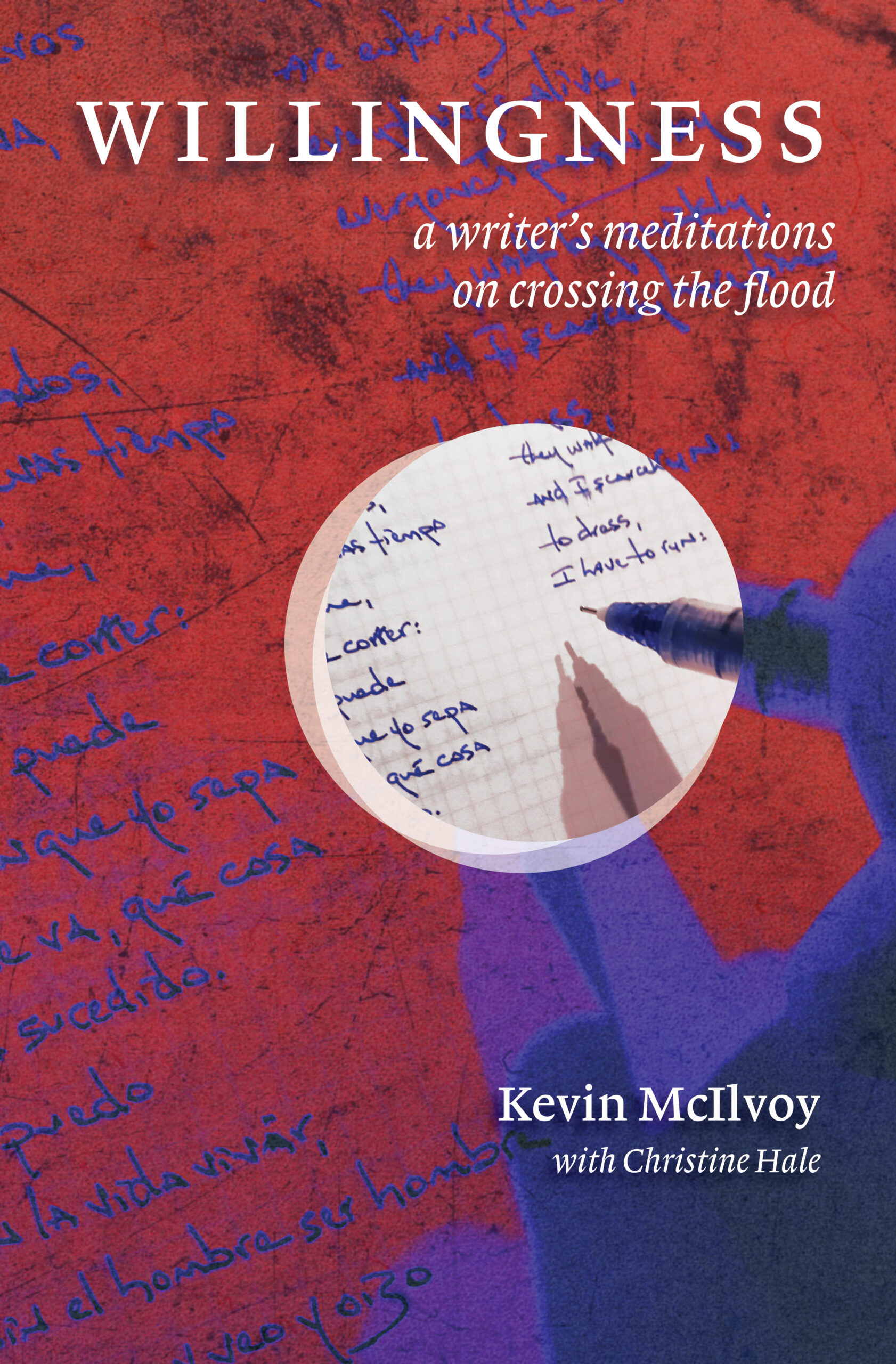Drawn from legendary author and mentor Kevin “Mc” McIlvoy’s four decades of teaching, Willingness encourages writers to embrace the enigmas that fuel creativity. Mc conceived of Willingness as his process of searching for truth—the “dark and luminous beauty” pulsing at the heart of life and art, if only we are willing to seek it. This is a book not on how to write but how to keep writing.
Praise for Willingness:
What a rare and beautiful book this is. So large and so particular. Who but Mc could be so hardheaded about the complicated spiritual practices involved in writing? A long and ever-branching list. On every page is what the book itself calls “the imagination which is the transformer of perspective.” A triumph.
— Joan Silber, author of Secrets of Happiness and Improvement
How will I reside in language differently than I did yesterday? How will I listen differently than I listened yesterday? Those questions are at the heart of Willingness’s luminous meditations, and they carry the discipline and anticipatory openness, the sustained attention and generative joy in unsettledness, that Kevin McIlvoy modeled for decades as a writer and teacher. Mc’s past colleagues and students as well as new generations of writers are deeply indebted to editor Christine Hale for this continued opportunity to accompany our fellow seeker on the artist’s quest to “cross the flood.”
— Debra Allbery, author of Fimbul-Winter and Director of the MFA Program for Writers (2009-23)
In the marvelous Willingness, McIlvoy and Hale explore the intimate connections between making art and making a life. There is much excellent advice about essential aspects of the craft of fiction – voice, characterization, form, plotting, revision – but what truly distinguishes this book is the deeply thought, deeply felt suggestions about how to keep writing in the midst of doubts and difficulties, how to find a path to what truly matters. Reading these beautiful pages made me feel accompanied in the best way.
— Margot Livesey, author of The Road from Belhaven
Pulsing with Mc’s wild wonder and joy, supplemented beautifully by Chris Hale’s loving attention and insight, Willingness: A Writer’s Meditation on Crossing the Flood is a gift for artists of all kinds, encouraging the embrace of paradox, the discernment of surprise, the willingness to embrace enigmas that lead us deeper into our creativity. This gem of a book—as wholly original and inspiring as Mc was as a teacher, mentor and friend—is its own encounter of beauty and will live, cherished, on my writing desk.
— Jennifer Rosner, author of The Yellow Bird Sings and Once We Were Home
Order Now from WTAW Press!

